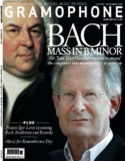Texte paru dans: / Appeared in: |
|
|
Outil de traduction (Très approximatif) |
|
|
Reviewer: David Vickers
Handel’s only Venetian opera was the triumphant climax to his extended grand tour around Italy. Recorded live at the Göttingen Handel Festival last May, this staged production was the premiere of a new critical edition by the musicologist John E Sawyer, which alerted the production team to the possibility of adding a short aria for Poppea that Handel discarded during the composition process. On the other hand, a few recitatives are discreetly abridged and the deus ex machina close is omitted. However, its three-and-ahalf-hour duration means nobody in their right mind would complain about a lack of musicodramatic substance to get their teeth into. The international orchestra of leading expert practitioners play thrillingly; the overture is one of Handel’s best, and it has a vivid synergy between alert strings, crisp continuo and dextrous solo oboe passages.
Agrippina’s ‘Pensieri, voi tormentate’ is played explosively by the orchestra and sung potently by Ulrike Schneider, whose characterisation of the scheming titlecharacter is unusually acerbic and perhaps even insecure, with clear hints that the empress’s glory days are long behind her. Vulnerability and the creaking effects of advancing age are also evident in João Fernandes’s interpretation of the Emperor Claudius; his attempt to seduce Poppea in ‘Vieni, o cara’ is sung with a hint of weariness amid the seductive tenderness (and it is played gorgeously by the softly sensual strings). Ida Falk Winland’s brighttoned voice is overly tremulous in Poppea’s first aria ‘Vaghe perle’, but her robust technique is shown to fine advantage in ‘Se giunge un dispetto’ – although perhaps Handel meant the mood of the accompaniment to be carefree rather than antagonistic.
Ottone is the only honourable character in the opera and therefore the unwitting victim of everyone else’s machinations: Christopher Ainslie sings with an unyielding muskiness and quivering vibrato which diminish the poignant beauty of the character’s plaintive ‘Voi che udite il mio lamento’, but he delivers ‘Vaghe fonti’ with unaffected directness. Jake Arditti is firm and characterful as the precocious and combustible Nerone; the satirical comedy of his piously distributing alms among the poor (‘Qual piacere’) is not transmitted on this occasion, but the spoilt brat’s volatile tantrums come across loudly and clearly in ‘Come nube, che fugge dal vento’, with dazzling concertante violins and oboes. The comic double-act of Agrippina’s stooges Narciso and Pallante are sung impeccably by Owen Willetts and Ross Ramgobin.
An unfiltered live recording is inevitably a mixed bag for consumption away from the theatre, but the vivid dramatic conviction of this performance reconfirms the stature of Agrippina as Handel’s first great operatic masterpiece.
|
|
|
|
|
|
Cliquez l'un ou l'autre
bouton pour découvrir bien d'autres critiques de CD |
|




